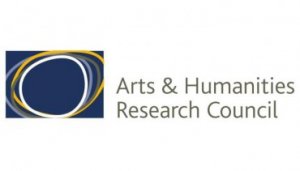AHRC Follow-on Funding for Impact and Engagement
The AHRC Follow-on Funding for Impact and Engagement Scheme (FoF) provides funds to support innovative and creative engagements with new audiences and user communities which stimulate pathways to impact. Funds will be awarded for knowledge exchange, public engagement, dissemination and commercialisation activities that arise unforeseeably during the lifespan of or following an AHRC-funded project.
The scheme does not support supplementary funding for continuation of research activities. Proposals must clearly demonstrate both a well-defined non-academic need for the work and engagement with potential users and stakeholders in developing their project. Proposed activities must enhance the value and wider benefit of the original AHRC-funded research project, and clearly demonstrate how they will deliver significant economic, social, cultural and/or policy impacts.
International Co-Investigators
The AHRC allows international researchers to act as Co-Investigators on some of its schemes. Following a successful trial period for this policy, and in line with the commitments made in the Council’s current delivery plan, it has been decided to incorporate provision for International Co-Investigators into AHRC’s core eligibility requirements and standard funding terms and conditions on an ongoing basis.
In order to be considered eligible, an international co-investigator needs to have suitable academic experience (i.e. someone holding a PhD or equivalent qualification or experience) and be based at an established research organisation with significant research capacity. This organisation should be of comparable status and standing to a UK organisation which is eligible for UK Research Council funding, for example, a publicly funded university or a ‘not-for-profit’ research institution with a track record and distinctive research capacity and capability and distinctive research capacity in areas relevant to the proposed research. If an international co-Investigator is on the proposal an International Co-Investigator Head of Department Statement from the international co-I’s Head of Department must be attached to the proposal. If this is not attached the proposal will be rejected at sift stage 1. Further information about what to add in the International Co-Investigator Head of Department Statement can be found below in Attachments - International Co-Investigator Head of Department Statement.
International research organisations must have the necessary research capacity and capability to support the conduct of the specified research. It is the PI’s responsibility to articulate in the proposal the added value that an international co-investigator will bring to the overall leadership of the research and their role in the management of the project, as well as the relevant research experience and expertise that they will bring to the project team. It is the responsibility of the UK RO to check that the international co-investigator’s organisation is an appropriate organisation to receive and has systems in place to manage the funding provided. The RO will also need assurance that appropriate agreements are put in place for the delivery of the overseas activities funded under the grant. The AHRC will not be able to provide any additional assurance to ROs about overseas partners, but may by exception undertake additional checks or seek further information from ROs.
International co-investigators will not be permitted to take over as lead researcher (i.e. Principle Investigator) should the UK Principle Investigator step down for any reason.
Please note that before applying an international co-Investigator must have an active Je-S account, and it is the UK Research Organisation’s responsibility to ensure that this is the case.
Aims
- to explore unforeseen pathways to impact either within the lifespan of an AHRC research project or resulting from a completed research project
- to enhance the value and benefits of AHRC-funded research beyond academia
- to encourage and facilitate a range of interactions and creative engagements between arts and humanities research and a variety of user communities to include business and commercial, third sector and heritage sector, public policy, voluntary and community groups and/or the general public.
Scheme limit and duration
The FoF Scheme offers awards of up to £100,000 (FEC) for a maximum of 12 months either full- or part-time to support emergent or supplementary knowledge exchange, public engagement, active dissemination or commercialisation/proof of concept activities. Smaller awards of up to £30,000 (FEC) are encouraged for shorter, higher risk activities, for example testing the feasibility of an idea, exploring new partnerships for knowledge exchange, testing the market or investigating a new business model. Decision making times are reduced for these smaller awards.
Deadlines
This scheme operates without formal deadlines and you are able to submit proposals at any time of year.
There are no restrictions on how long ago the original project was funded, but the case must be made as to how the new proposal is appropriate and relevant if a significant amount of time has elapsed.
Applications over £30,000 FEC:
We aim, where possible, to complete the assessment process within 14-16 weeks and the earliest start date for a project should be no earlier than five and no later than nine months after submission.
If the start date is not as adhered to as above if the proposal is successful you may be asked to change the start date.
Applications under £30,000 FEC:
We aim, where possible, to complete the assessment process within six weeks and the earliest start date should be no earlier than three and no later than nine months after submission.
If the start date is not as adhered to as above if the proposal is successful you may be asked to change the start date.
Eligible activities
The focus of the FoF scheme is on impact generating activities and engagement with new user communities and non-academic audiences. Types of activity supported by this scheme include:
- knowledge exchange, interactive public engagement or active dissemination activities. These must engage new user communities and audiences.
- commercialisation or proof of concept-activities that build upon knowledge exchange and pathways to impact already undertaken but which take those activities in a new direction and to new audiences
- conferences and seminars for a policy/practice audience
- pursuit and development of new user contacts
- feasibility studies to test the potential application of ideas emerging from the research in different business, policy or practice contexts
Ineligible activities
The Follow-on Funding scheme:
- Cannot be used to support pathway to impact activities that have already been taken into account in the original proposal.
- Cannot be used to extend an existing grant or award or to continue similar or existing activities or conduct further research.
- Cannot be used to support resource enhancement activities or to develop or extend an existing website or resource.
- Does not cover research leave type activities or primarily fund staff time.
- Cannot be used to support principally academic outputs (such as an academic paper, conference or a publication).
If any of the above appears to be the case, the proposal will be deemed ineligible.
Eligibility criteria
The AHRC FoF scheme has been developed to support innovative and creative engagements with new non-academic audiences and user communities, which stimulate pathways to impact. This is the primary criterion for funding support. Proposals must:
- be based upon either previous or current research directly funded by the AHRC (with the exception of research conducted under Masters, Doctoral or Collaborative Doctoral (CDA) and Knowledge Transfer Partnerships (KTPs)).
- be based upon research that has been co-funded with another UK Research Council, funded entirely by another UK Research Council, or funded under RCUK supported schemes such as the HERA Joint Research Programme, but only where the FoF proposal genuinely falls within the AHRC’s remit. In such cases strong justification is required for why the FoF project is directed to the AHRC, together with supporting evidence and previous proposal.
- support innovative pathways to impact opportunities that could not have been foreseen at the original proposal stage and/or that have not already been taken account of in the original award. Proposals need to demonstrate clearly how it will add significant value to pathways to impact activities that were already identified within the original award.
- exploit creative and innovative ideas rather than repeating, continuing or extending existing activities or conducting substantively new research projects.
- be focused towards non-academic audiences and relevant user communities. You should demonstrate engagement with potential users and stakeholders throughout the project’s definition and development processes.
- be led by the original PI from which the project derives. However, where it is more appropriate to the nature of the proposed activity, another member of the original research team may lead the FoF project. In such cases the original PI would be expected to be named as CO-I at least in an advisory capacity. This would need to be justified in the Case for Support.

